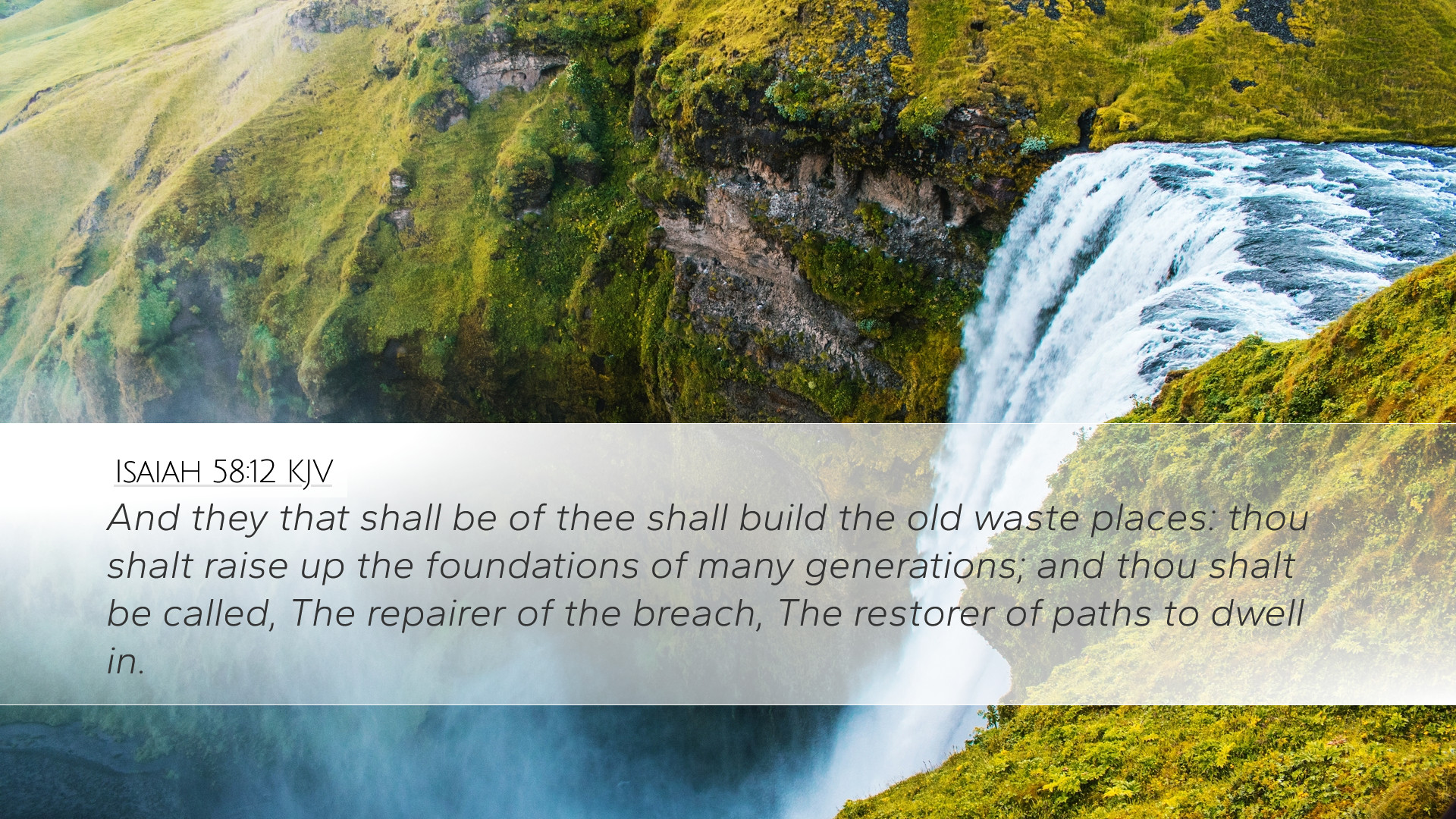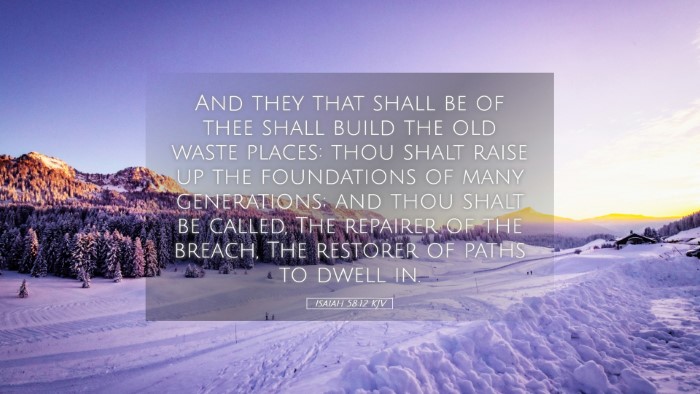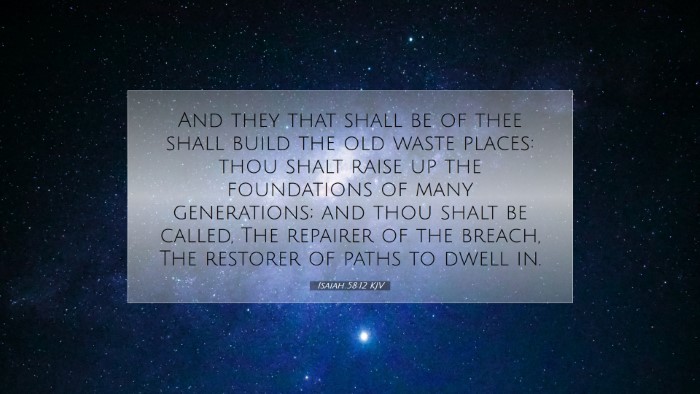Commentary on Isaiah 58:12
Isaiah 58:12 states:
"And they that shall be of thee shall build the old waste places: thou shalt raise up the foundations of many generations; and thou shalt be called, The repairer of the breach, The restorer of paths to dwell in."
This verse encapsulates themes of restoration, community, and divine promise. A thorough examination of this text with insights from public domain commentaries reveals profound spiritual meanings relevant to pastors, students, theologians, and Bible scholars.
Contextual Background
Isaiah speaks to the nation of Israel, emphasizing the importance of true worship and social justice. The broader context of chapter 58 critiques hollow ritualism and calls for genuine acts of compassion and service.
Insights from Commentators
Matthew Henry's Commentary
According to Matthew Henry, the essence of this verse lies in the transformative power of God's people. He highlights that:
- Building the Waste Places: The “old waste places” refer to the ruins of Jerusalem and the spiritual desolation that accompanies disobedience to God. Henry stresses that the faithful will actively participate in rebuilding, reflecting their commitment to God’s restoration.
- Generational Foundations: The mention of “foundations of many generations” indicates a call to uphold the spiritual heritage and ensure that future generations inherit a robust faith.
- The Repairer of the Breach: This title, “The repairer of the breach,” signifies the role of the faithful in mending the divisions caused by sin and societal decay. It emphasizes the community’s responsibility to foster unity and healing.
Albert Barnes' Commentary
Albert Barnes elaborates on the implications of rebuilding the ‘waste places’ by stating:
- Divine Tool for Restoration: Barnes notes that God often uses His people as instruments for His purpose. The act of rebuilding is not merely physical but deeply spiritual, requiring a return to righteousness and a commitment to God's will.
- Community Engagement: He stresses that the restoration God promises extends to the community. It involves collective efforts to revive the spiritual and moral fabric of society.
- Pathways of Righteousness: The “paths to dwell in” represent the ways of righteousness. Barnes suggests that restoring these paths is essential for a thriving relationship with God and with one another.
Adam Clarke's Commentary
Adam Clarke offers additional insights, noting the prophetic aspect of the verse:
- Prophetic Fulfillment: Clarke argues that this scripture is a prophecy regarding the coming of the Messiah, who will ultimately fulfill the rebuilding of the broken-down walls of Jerusalem, both literally and spiritually.
- Call to Action: He emphasizes that believers are called to action in their communities, echoing the sentiments of being a “repairer” and a “restorer” as an essential aspect of the Christian faith.
- The Nature of True Worship: Clarke concludes that true worship extends beyond personal piety; it must manifest in social action and the improvement of the community.
Theological Implications
This verse and its interpretation have several significant theological implications:
- God's Call to Justice: The emphasis on rebuilding and repair resonates with the biblical call for social justice and community responsibility, urging believers to reflect Christ-like compassion.
- Intergenerational Faithfulness: There is an urgent reminder that faith is not meant to stagnate but should grow and be passed on across generations.
- Restoration as a Central Theme: The idea of God as a restorer indicates His desire for reconciliation—not only with individuals but also with communities and nations.
Practical Applications for Believers
In light of the insights gathered from the verse and complemented by the commentaries, here are practical applications for modern believers:
- Engage in Community Service: Pastors and church leaders should encourage congregations to involve themselves in social justice initiatives, embodying the spirit of restoration.
- Foster Intergenerational Relationships: Churches should create programs that connect different generations, reinforcing the idea of shared faith and heritage.
- Be Agents of Reconciliation: Encourage congregants to act as peacemakers within and beyond the church, addressing societal divides with love and humility.
Conclusion
Isaiah 58:12 serves as a powerful exhortation for believers to become active participants in God’s work of restoration and healing. Through insights from esteemed biblical commentators, we gain a richer understanding of our calling as “repairers of the breach” and “restorers of paths.” By living out these principles, we can contribute to the divine mission of unity and community building in a broken world.


